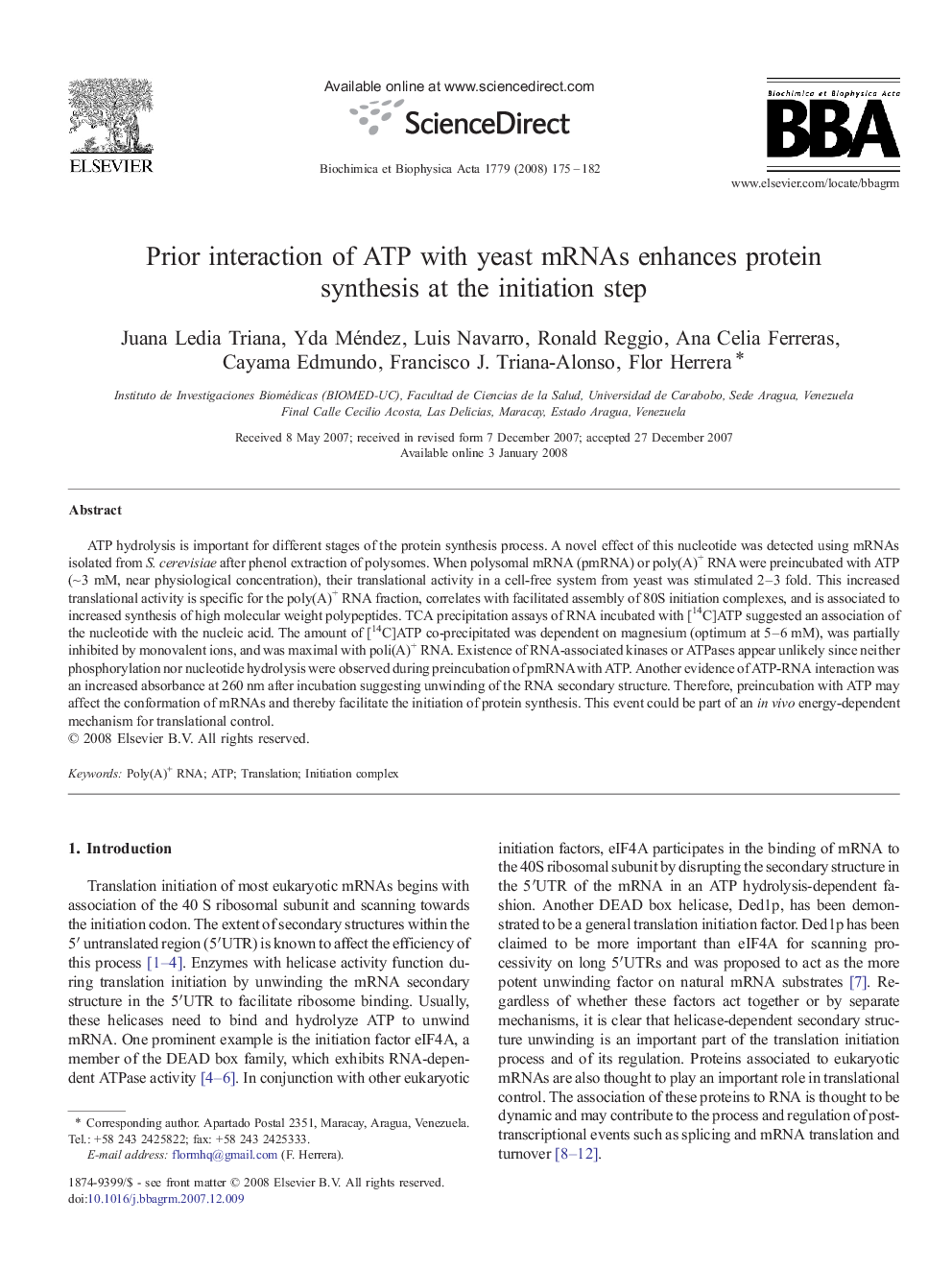| Article ID | Journal | Published Year | Pages | File Type |
|---|---|---|---|---|
| 1947006 | Biochimica et Biophysica Acta (BBA) - Gene Regulatory Mechanisms | 2008 | 8 Pages |
ATP hydrolysis is important for different stages of the protein synthesis process. A novel effect of this nucleotide was detected using mRNAs isolated from S. cerevisiae after phenol extraction of polysomes. When polysomal mRNA (pmRNA) or poly(A)+ RNA were preincubated with ATP (~ 3 mM, near physiological concentration), their translational activity in a cell-free system from yeast was stimulated 2–3 fold. This increased translational activity is specific for the poly(A)+ RNA fraction, correlates with facilitated assembly of 80S initiation complexes, and is associated to increased synthesis of high molecular weight polypeptides. TCA precipitation assays of RNA incubated with [14C]ATP suggested an association of the nucleotide with the nucleic acid. The amount of [14C]ATP co-precipitated was dependent on magnesium (optimum at 5–6 mM), was partially inhibited by monovalent ions, and was maximal with poli(A)+ RNA. Existence of RNA-associated kinases or ATPases appear unlikely since neither phosphorylation nor nucleotide hydrolysis were observed during preincubation of pmRNA with ATP. Another evidence of ATP-RNA interaction was an increased absorbance at 260 nm after incubation suggesting unwinding of the RNA secondary structure. Therefore, preincubation with ATP may affect the conformation of mRNAs and thereby facilitate the initiation of protein synthesis. This event could be part of an in vivo energy-dependent mechanism for translational control.
